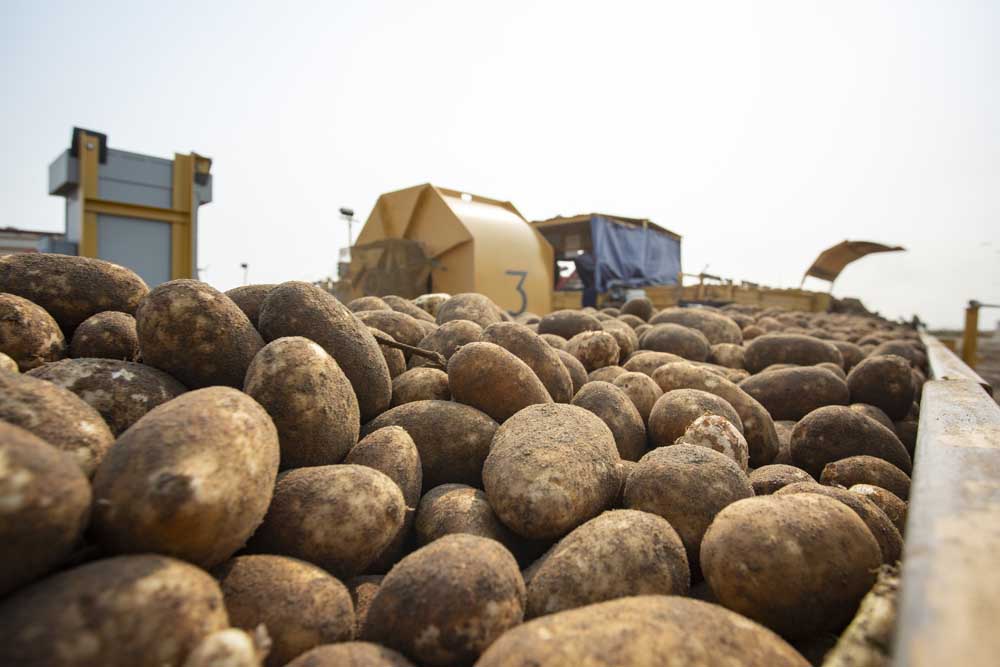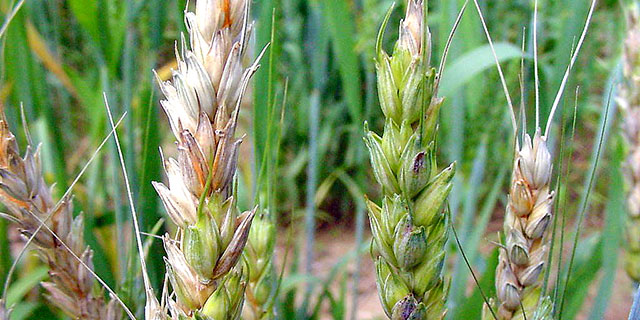Farm groups concerned with Mexico’s growing trade barriers
Published 4:30 pm Monday, March 22, 2021

- Potatoes roll down a conveyor belt at Threemile Canyon Farms during harvest near Boardman, Ore., on Sept. 30.
The American Farm Bureau Federation and 26 other U.S. agricultural groups have sent a letter to USDA Secretary Tom Vilsack and U.S. Trade Representative Katherine Tai to bring their attention to trade issues with Mexico.
“AFBF is extremely concerned with the rapidly deteriorating relationship between the U.S. and our neighbors to the south,” Zippy Duvall, Farm Bureau president, said in a written statement on Monday.
The U.S. built strong trade ties with Mexico through the North American Free Trade Agreement and improved upon them with the U.S.-Mexico-Canada Agreement, he said.
“But recent moves by Mexico to limit American imports and to undercut prices in the U.S. puts America’s farmers and ranchers at a competitive disadvantage,” he said.
Some issues, such as access to Mexico’s potato markets, have been ongoing for years. Others are fairly recent, Dave Salmonsen, Farm Bureau senior director of congressional relations, told Capital Press.
“Things just aren’t getting addressed,” he said.
With a new administration, it just seems like a good time to address these issues again, he said.
Farm Bureau wants to “make sure everybody’s up to speed and make sure they’re aware of our concerns,” he said.
Farm Bureau hopes to bring attention to the issues and move ahead with getting some resolved. Mexico has been a good market for the U.S., and it’s the No. 1 export market for some commodities, such as corn and dairy products, he said.
“It’s been a growing market, and we want to keep it growing,” he said.
In addition to market access for U.S. potatoes, the leading concerns include Mexico’s presidential decree in December to phase out the use of glyphosate and genetically modified corn for human consumption, creating a significant risk for cross-border trade of corn and corn products.
Mexican officials have also undertaken a “native corn” campaign with the stated objective of eliminating corn imported from the U.S. Mexico has also undertaken a state-sponsored campaign to disparage corn sweeteners from the U.S., including depicting high fructose corn syrup as a “poison.”
The concerns also include increasing obstacles to dairy trade. Those include:
• A new mandatory conformity assessment for cheese that would add significant costs for U.S. suppliers.
• A continual churn in customs enforcement.
• Repeated policy changes, including ones aimed at curtailing dairy imports.
• Growing restrictions on the use of common cheese names.
Mexico also informed the Organic Trade Association in the U.S. that it would begin requiring all U.S. organic exports to Mexico to become certified to Mexico’s organic standards, which would cause significant trade disruptions and losses for U.S. exporters.
There is also concern over policies that would restrict the U.S. meat industry’s access to Mexican markets and the European Union’s attempt to seize exclusive common meat terms, such as bologna, under its 2018 trade agreement with Mexico.
Another concern is that Mexico ceased its review and approval of any biotechnology applications, potentially restricting U.S. farmers’ access to new technologies and affecting exports of products produced through biotechnology.
U.S. agriculture organizations are also concerned with new labeling requirements that lack a sound, scientific basis and a government campaign to curtail U.S. imports by attacking the reputation of imported products.






